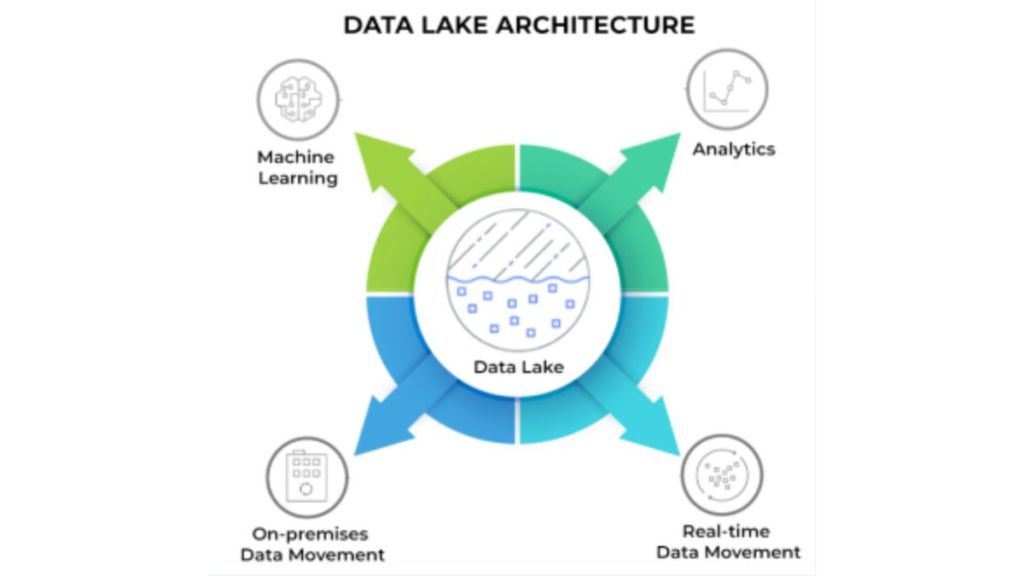Akshay Agarwal’s innovative vision for building data lakes has offered groundbreaking insights into how organizations can harness their data for artificial intelligence and machine learning applications, proposing new standards in data architecture across industries. His comprehensive understanding demonstrates that modern data lakes should serve as more than mere storage repositories – they must function as the foundation of sophisticated AI/ML systems that drive business transformation and operational excellence.
At the core of Agarwal’s proposed framework lies a sophisticated yet adaptable approach, where raw data undergoes careful transformation into actionable insights. His architectural vision creates distinct zones that systematically process data from its raw form to analytics-ready datasets, ensuring both flexibility and structure in data management. This methodical organization proves crucial for organizations seeking to leverage their data effectively for AI and ML applications.
In examining potential industry applications, Agarwal has extensively studied the restaurant sector as a prime example of where data lake architecture could revolutionize operations. His analysis suggests that a unified data lake solution could elegantly integrate multiple data sources – from point-of-sale transactions and kitchen management systems to inventory tracking and customer feedback platforms. Through real-time processing pipelines, such a system could analyze patterns in customer ordering behavior and automatically adjust inventory predictions, potentially leading to significant reductions in food waste and operational costs.
The technical sophistication of Agarwal’s proposed architecture incorporates Delta Lake integration for ensuring data consistency, real-time processing capabilities through Apache Kafka and Apache Spark Streaming, and seamless machine learning pipeline integration. This robust framework could process millions of transactions hourly, enabling immediate insights into performance metrics while maintaining strict data governance and security protocols through role-based access control, end-to-end encryption, and automated compliance monitoring.

Agarwal’s research indicates that such an architecture could enable highly accurate demand forecasting by analyzing historical sales data alongside external factors like weather patterns and local events. His proposed system architecture supports sophisticated menu optimization through AI algorithms that consider customer preferences, ingredient costs, and preparation times. Deep learning models could process customer behavior data for personalized recommendations, while predictive maintenance models could utilize IoT sensor data to prevent equipment failures proactively.
The projected impact of implementing such data lake architecture in restaurant operations could be substantial. Agarwal’s analysis suggests potential improvements across key metrics – from reduced food waste and improved customer satisfaction to increased operational efficiency and faster decision-making processes. The architecture’s scalability would allow businesses to grow without compromising system performance, while its modular design would facilitate easy integration of emerging technologies and new data sources.
The significance of Akshay Agarwal’s insights extends far beyond specific industry applications. His framework provides valuable guidance for organizations across sectors looking to leverage AI/ML capabilities effectively. By focusing on both technical excellence and practical business applications, Agarwal has developed a theoretical framework that bridges the gap between data storage and AI/ML implementation, proposing new standards for data architecture strategies in the age of artificial intelligence.
His research demonstrates that well-architected data lakes are critical enablers of AI/ML innovation, capable of transforming raw data into actionable intelligence that drives business value. Through his innovative thinking and comprehensive understanding of data architecture, Agarwal continues to contribute valuable insights into how organizations should approach their data infrastructure needs, suggesting that thoughtful data lake architecture is fundamental to successful AI/ML adoption and digital transformation.
ALSO READ: Enterprise IoT Innovation: Rohan Viswanatha Prasad’s Pioneering Connectivity Platform At Dell













